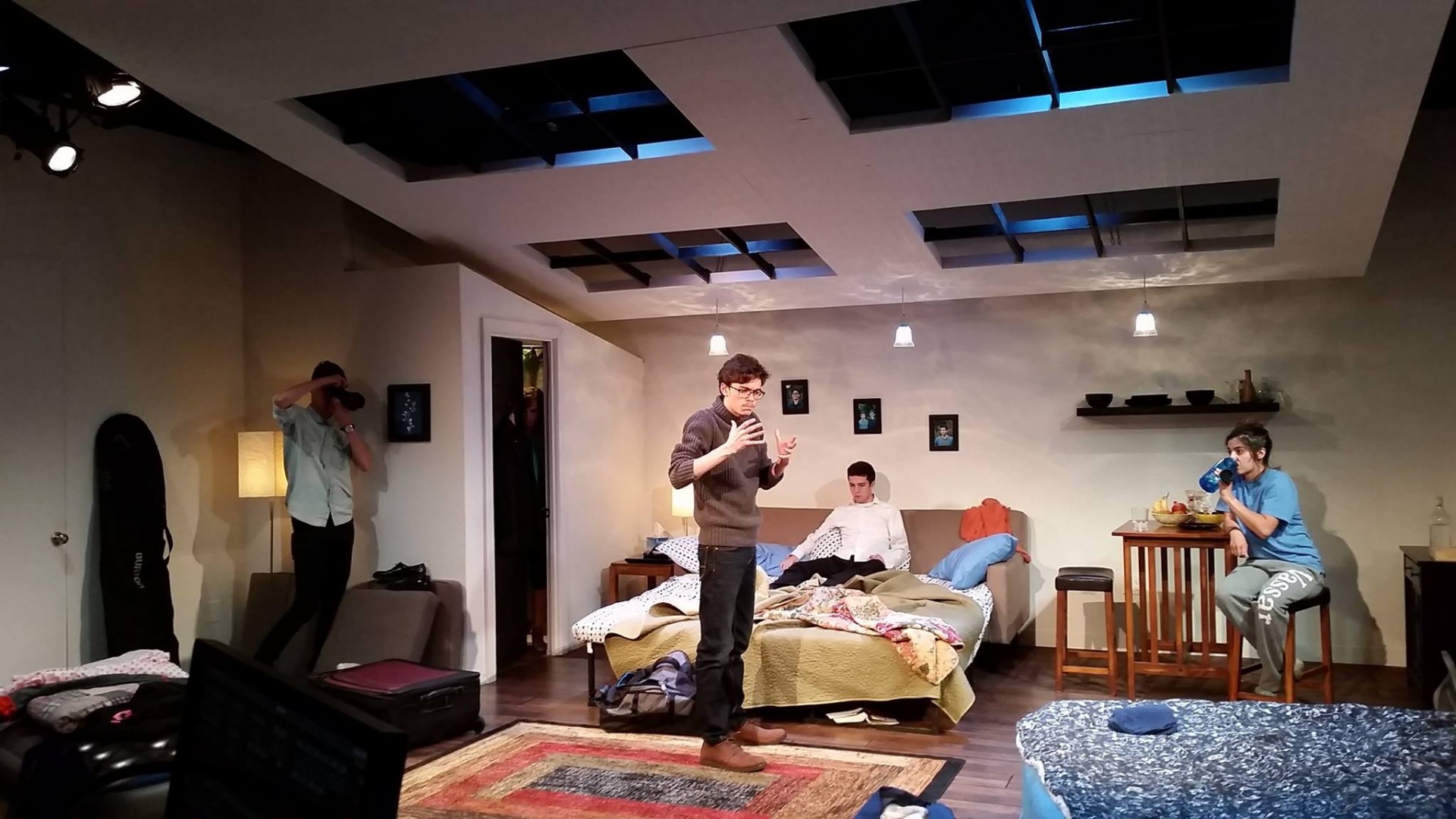The White Box Studio, located in Johnson-McFarlane, is small and intimate, perfect for the recent showing of the student-acted play “Bad Jews.” The DU Department of Theatre’s production is highlighted by the small space, letting the power of the actors and the script shine through.
“Bad Jews,” a dark comedy written by Joshua Harmon (New York City), has a cast of only four actors: brothers Jonah (Tristan Anderson, Denver) and Liam (Daniel Crumrine, Portland, Oregon), their cousin Daphna (Meagan Traver, Castle Rock, Colorado) and Liam’s girlfriend Melody (Rachel Reidenbaugh, Colorado Springs, Colorado). The show is directed by Dr. Greg Ungar, an associate professor.
Jonah, Liam and Daphna are brought together by the death of their grandfather, Poppy—a revered community member, and a Holocaust survivor—something that becomes a sticking point throughout the play. While the rest of the family stays down the hall, the four of them are stuck together in Jonah’s tiny studio apartment, arguing over their Poppy’s chai: a symbolic piece of jewelry that he protected all the way through the Holocaust. But the argument quickly goes beyond that as Daphna and Liam brutally air all of their past animosities with each other while Jonah tries to stay out of it and Melody desperately tries to understand what’s going on. Daphna, who plans to move to Israel after her impending graduation from Vassar, can’t stand that Liam seemingly scorns Jewish tradition.
Traver plays Daphna so well that even as she manipulates and screams at each character, there’s still some sympathy left for her, especially as she reaches her heart-breaking emotional tipping point at the end of the play. Her self-righteous rage and desperation are completely believable, but so is everyone else’s viewpoint. The power of the play is that while some of it may be hard to relate to for someone who didn’t grow up in a very specific culture, each character has a point, and the actors keep the drama from becoming over the top.
While the central conflict is over the chai, the chai is just the focal point for something much larger: what does it mean to be a Jew in 21st century America? As one would expect from the title of the play, each character has a different idea of what it means to be a “bad Jew,” and each makes that perfectly clear. But the ending is left open-ended; no character’s viewpoint is fully given validation, leaving it for the audience to mull over.
There are five more performances of “Bad Jews” left, running from Oct. 21-25. Tickets are available for most shows through the Newman Center box office. More information about the play and upcoming productions are available on the Department of Theatre’s website.











